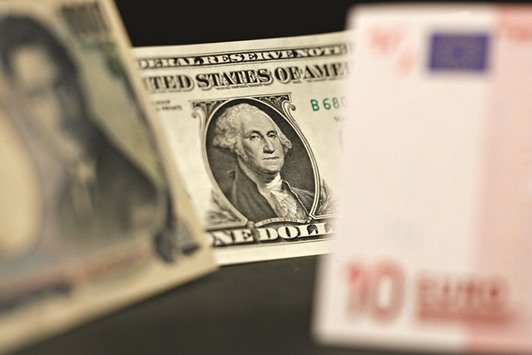Stock markets slid across the globe yesterday following fresh weakness in the oil price, analysts said.
News that consumer confidence in Germany is beginning to feel the heat from global economic risks and a poorer retail picture in Britain added to the downbeat sentiment, traders said.
After recovering on Wednesday as airline and travel stocks rebounded from falls caused by the deadly Brussels attacks, European markets headed south once more ahead of the Easter break, with miners taking a hit also, on falling metals prices.
“European markets are reacting to the new downturn in oil which is continuing today (Thursday),” brokers Aurel BGC said.
Investors also unwound positions ahead of a four-day market weekend, they said.
At the close, London’s benchmark FTSE 100 was down 1.5%, Frankfurt’s DAX 30 lost 1.7%, and the Paris CAC 40 dropped 2.1%.
At that time on Wall Street, the Dow Jones was 0.5% lower, with dealers citing weak oil, a strong dollar and the latest US durable goods orders figures as factors for the downturn.
In foreign exchange, the euro dropped against the dollar.
“The dollar continues to strengthen and this remains one of the key reasons that commodities are under pressure,” said Brenda Kelly, analyst at traders London Capital Group.
In London, the share prices of mining group Anglo American and Rio Tinto fell sharply, and oil majors also fell.
“Commodities denominated in the greenback are falling, taking oil and basic resource sectors of the stock market down with them,” said CMC Markets analyst Jasper Lawler.
The picture had been the same in Asia after crude prices tumbled on news that US commercial stockpiles surged by 9.36mn barrels last week, more than three times the amount forecast by analysts.
Hints the US could raise interest rates next month meanwhile drove the dollar higher, piling further pressure on commodities and sending Sydney’s resources-rich benchmark stocks index sliding 1.1%.
A stronger greenback makes it more expensive for investors using other currencies to buy dollar-priced commodities, and raw materials from iron ore to gold took a hit.
In Europe, market research company GfK said that optimism among German consumers faded this month.
“It is unlikely that weak demand for German goods in a number of key countries will not have any effect on German economic growth,” it added in a statement.
In Britain, fashion retailer Next warned that 2016 was set to be its toughest year since the global financial crisis, sending its share price slumping 11.5% nearing midday.
Official data meanwhile showed that British retail sales fell by a better-than-expected 0.4% last month compared to January.

A US one dollar bill is photographed with yen and euro notes in New York (file). Hints the US could raise interest rates next month drove the dollar higher yesterday; a stronger greenback makes it more expensive for investors using other currencies to buy dollar-priced commodities, and raw materials.
